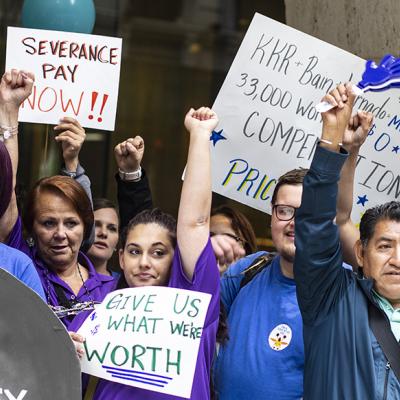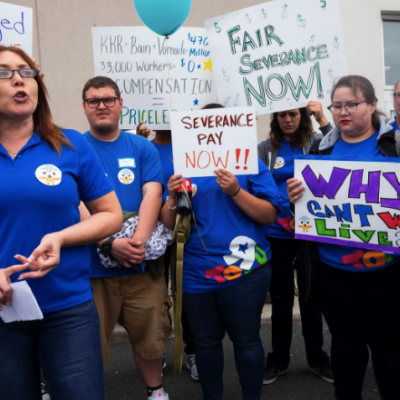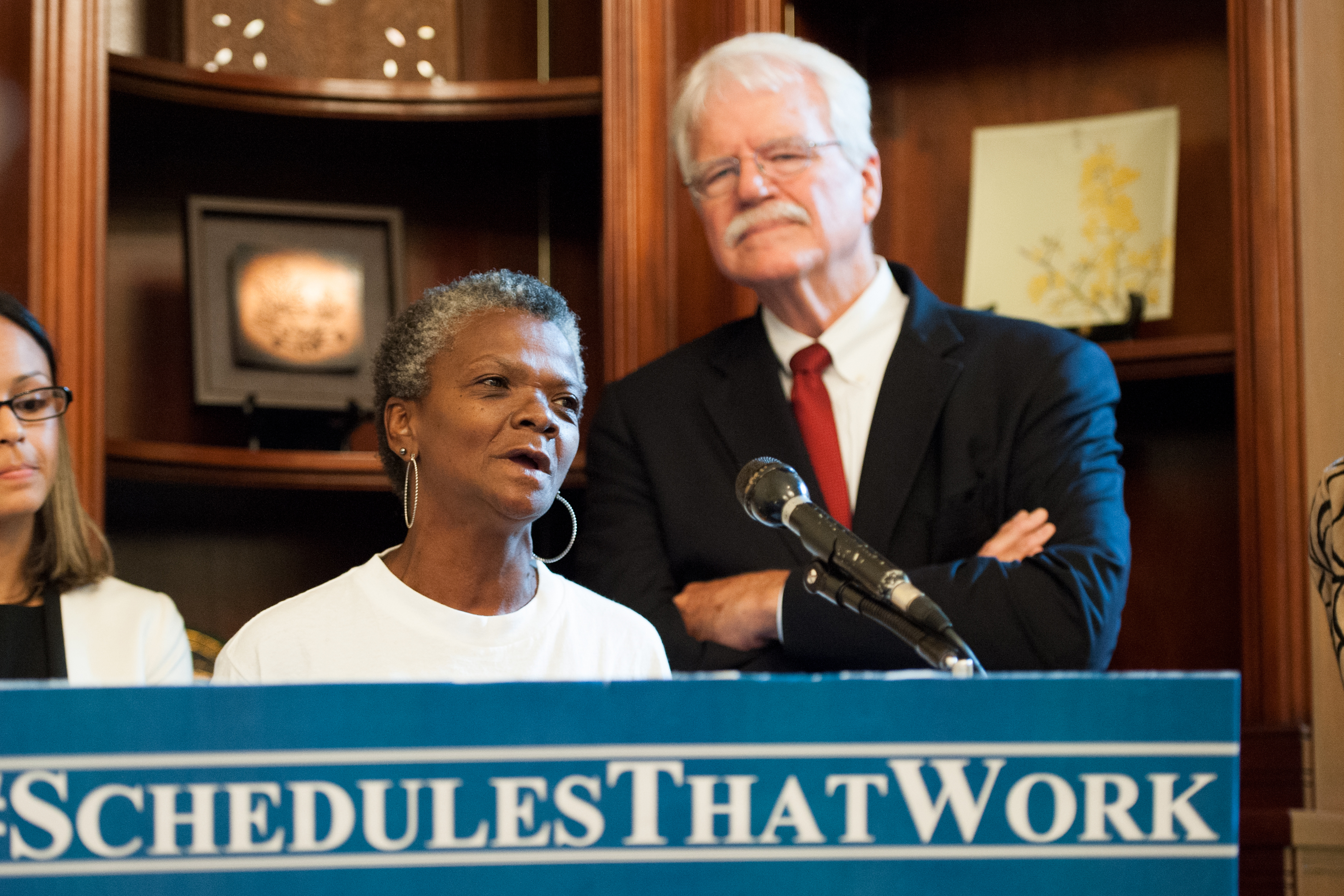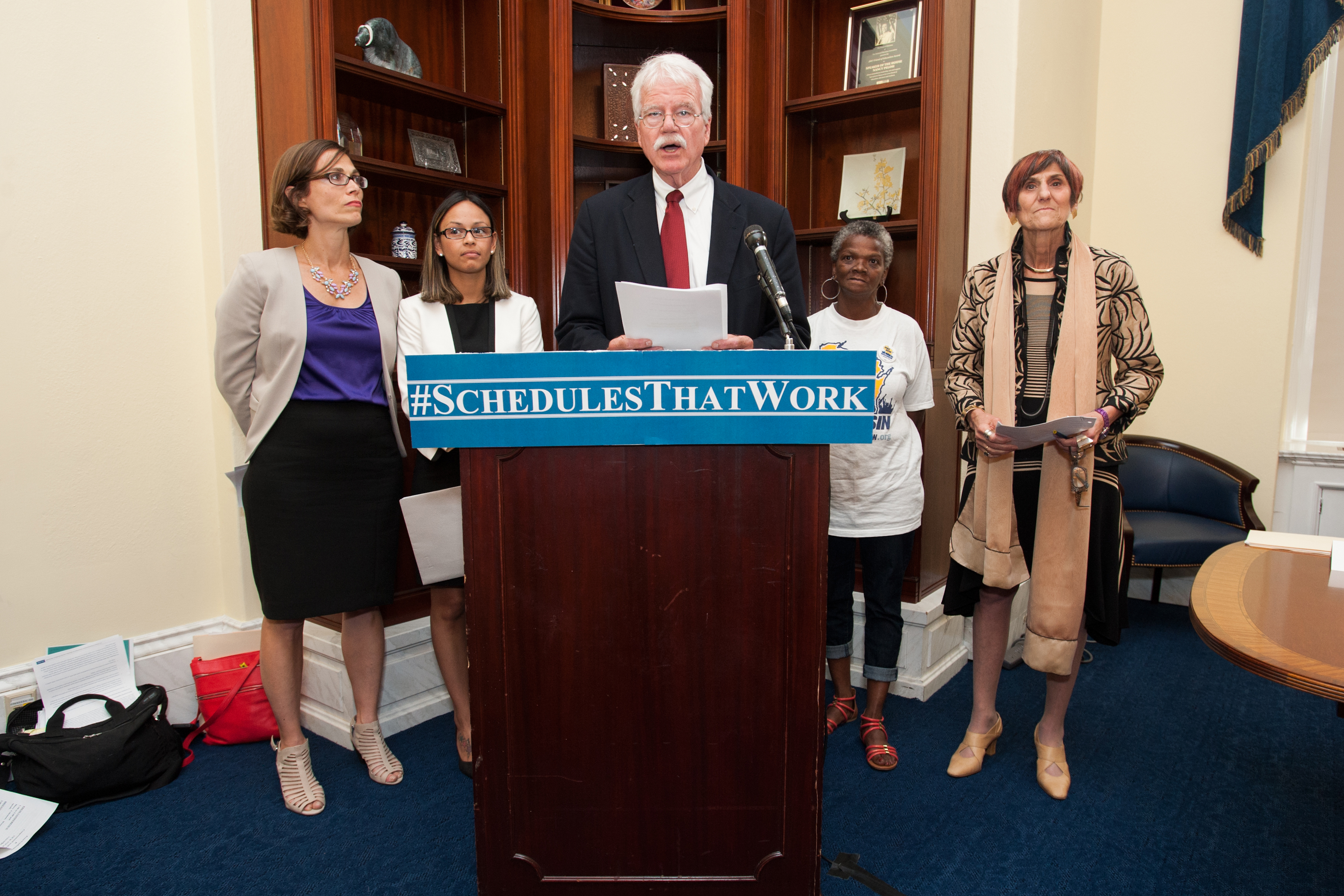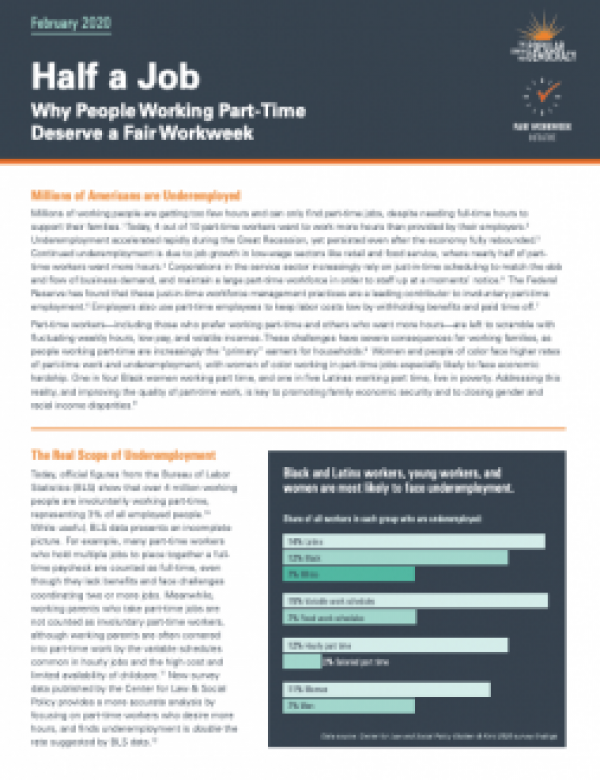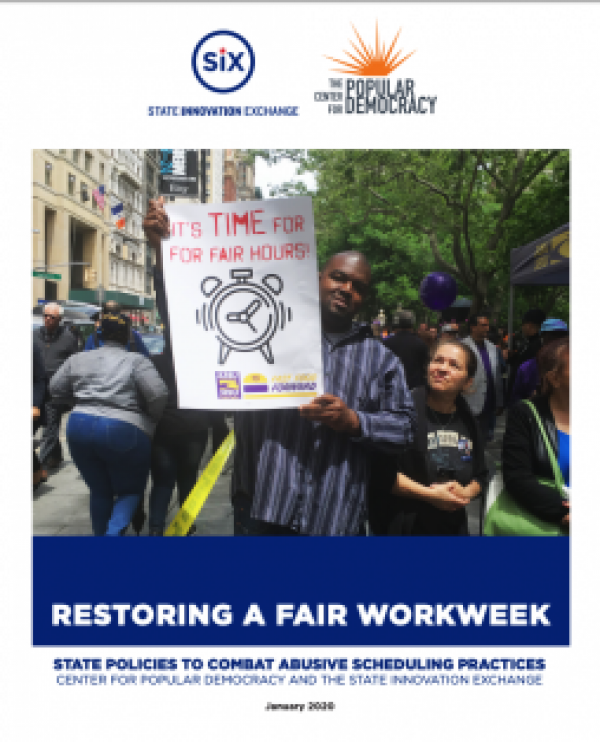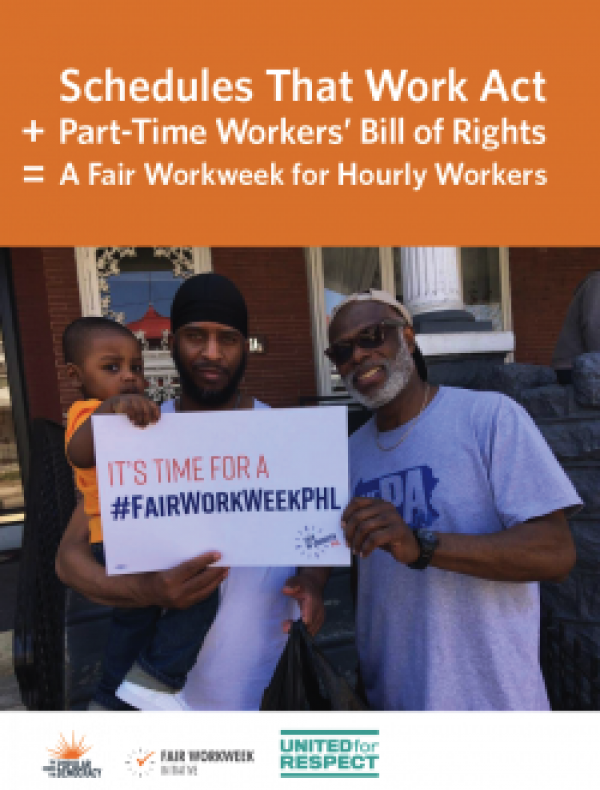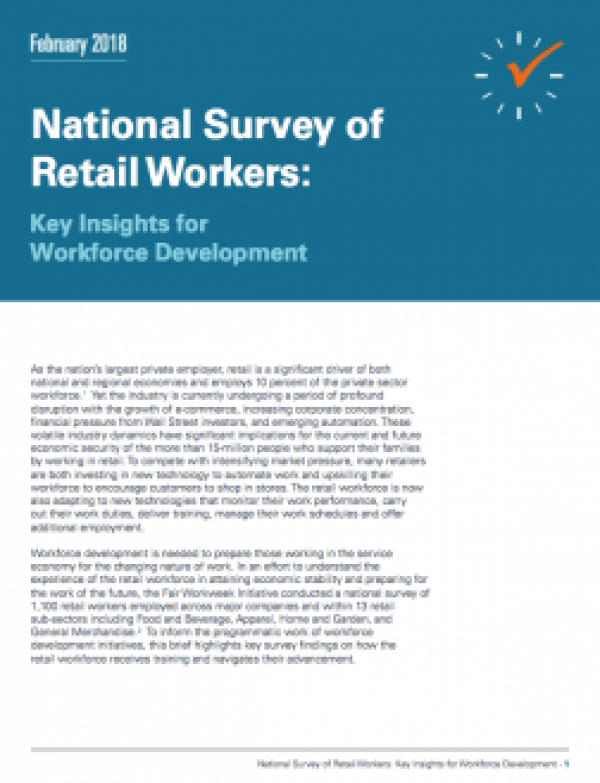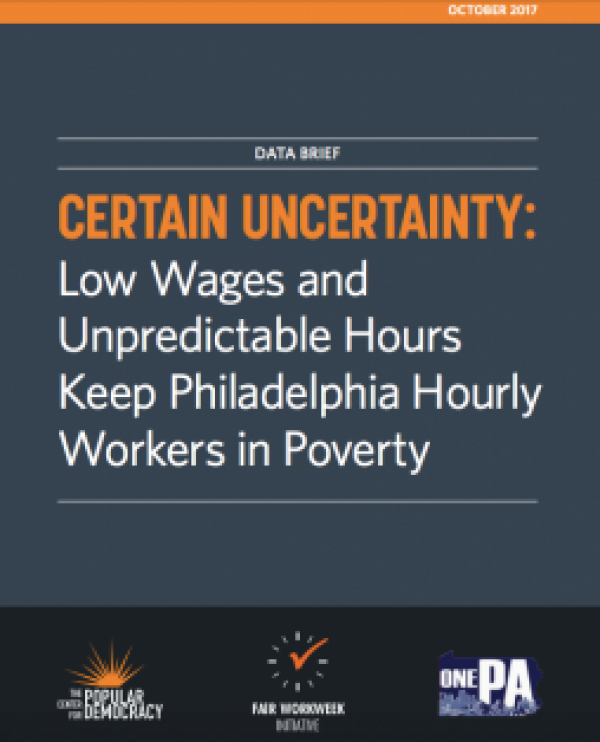

Restoring a Fair Workweek
The Fair Workweek Initiative
Low-wage workers and their families are struggling. Over the last decade, growing industries like retail, hospitality, and health care are creating an economy full of low-wage, no-benefit, part-time jobs with unreliable work hours. Corporate use of just-in-time scheduling is fueling massive under-employment and economic insecurity for working families.
At the same time, workers endure debilitating stress due to uncertainty about when they’ll work and how much they’ll earn each week. Unable to predict their hours or pay from day to day, hourly workers struggle to balance...
Low-wage workers and their families are struggling. Over the last decade, growing industries like retail, hospitality, and health care are creating an economy full of low-wage, no-benefit, part-time jobs with unreliable work hours. Corporate use of just-in-time scheduling is fueling massive under-employment and economic insecurity for working families.
At the same time, workers endure debilitating stress due to uncertainty about when they’ll work and how much they’ll earn each week. Unable to predict their hours or pay from day to day, hourly workers struggle to balance their job with college classes, enrol their children in quality child care, secure a second job, qualify for promotions, maintain healthy routines, or be there for their families. Women and workers of color, particularly in Black communities, are especially hard hit by the trend to structure hourly work in unstable part-time jobs.
The Fair Workweek Initiative (FWI) is a collaborative effort anchored by the Center for Popular Democracy (CPD) and United for Respect (UFR). FWI is bringing together leading worker-organizing, community-based organizations across the country, and allied research and policy groups to develop, drive, and win policy solutions at the local, state, and federal levels. These efforts concentrate on the priorities of low-wage women and women of color, and puts impacted communities at the forefront of the fight.
We are working to shift employer practices and advance transformative policy change that achieves:
-
Predictable, stable, and transparent schedules
-
Access to full-time employment
-
Healthy work hours with adequate rest
-
A voice in our work schedules
-
Use of workforce management and scheduling technologies that respond to workers’ needs
-
A 21st-century social safety net for today’s workforce
With this new baseline, we can provide working families with stable employment, a livable income, and adequate work house that will ensure working families can thrive.
Campaign Blog
Workers Tell Congress Why We Need a Fair Workweek
Philadelphia Passes Fair Workweek Policy Impacting 130,000 Workers
Monumental Win for Toys R Us Employees
Fair Workweek Initiative to Expand with Organization United for Respect
Toys R Us Workers Are Standing Up and Taking Action
New Report Explores Walmart’s Phantom Ladder of Opportunity
CPD Network Stands with Toys R Us Workers in Washington, DC
Fair Workweek Initiative Demands Employees Receive Severance Pay After Bankrupt Toys R Us Pays Millions in Executive Bonuses
New Report Shows How to Promote Economic Security for the Retail Workforce
facts & figures
Ever-changing schedules force us to be available 24/7 without a guaranteed steady income, wreaking havoc on our family lives and economic security. Surveys of hourly service-sector workers show:
-
Half work less than 35 hours each week, and two-thirds of these part-time workers want to work more hours.
- ...
Ever-changing schedules force us to be available 24/7 without a guaranteed steady income, wreaking havoc on our family lives and economic security. Surveys of hourly service-sector workers show:
-
Half work less than 35 hours each week, and two-thirds of these part-time workers want to work more hours.
-
About two-thirds of workers receive their work schedule with less than two weeks’ advance notice, and about one-third receive their schedule with less than one week’s notice.
-
80% of workers have little to no input into their schedules, which are decided unilaterally by their employer.
-
-
Half of all hourly service workers work unhealthy “clopening” shifts that require them to close their workplace late at night and return early the next morning to open on little rest.
-
69% of workers’ employers require them to keep their schedules “open and available,” which leaves them at the whim of employers.
-
Workers who experience last-minute shift cancellations, on-call scheduling, and clopenings are far more likely than workers in similar jobs with stable schedules to report psychological distress, poor sleep, and unhappiness.
News
News
Youth leaders have won significant reductions in arrests and summons...
10.17.2019
WASHINGTON -- In a roundtable discussion today with retail...
Unpredictable schedules can be brutal for hourly workers, upending their lives. New research...
Alicia Fleming had worked as a server at restaurants in Massachusetts for a decade...
In the retail industry, software for scheduling employee hours is a big sticking point, says...
“Just-in-time scheduling is the practice, pervasive in low-wage industries, of publishing work...
Between 2013 and 2015, the DOL helped workers collect an average of $27 million annually in...
The researchers’ work was supported by grants from the W.K. Kellogg Foundation, the Washington...
Two out of three retail workers believe that technology will eventually replace some of their...




